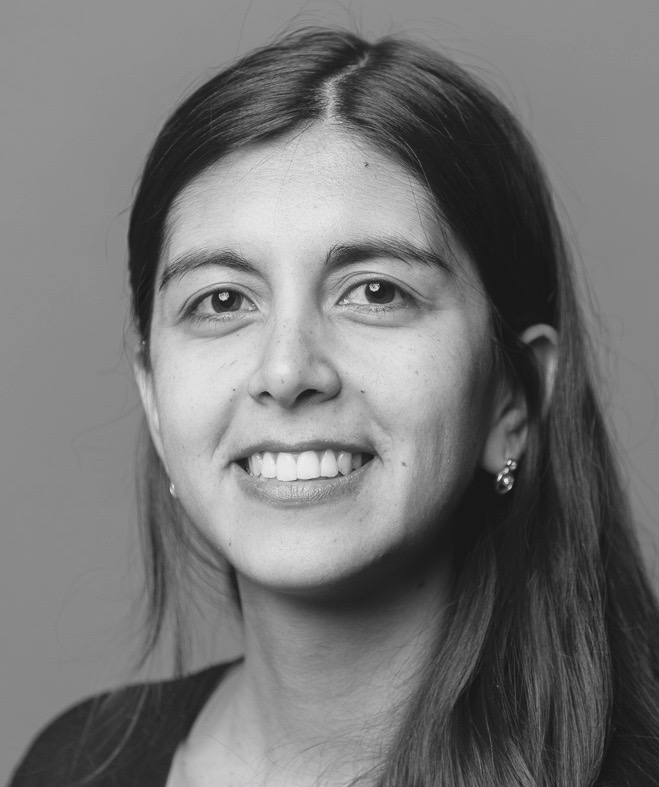
- This event has passed.
HITS-SIMPLAIX Joint Colloquium Fernanda Duarte: Exploring chemical reactivity in the age of automation and ML

By Fernanda Duarte, Department of Chemistry, University of Oxford, UK
Efficiently and accurately modelling chemical reactions in the condensed phase stands as one of the ‘grand challenges’ in computational chemistry. Although characterizing reaction energy pathways has become routine, the exploration of intricate reaction mechanisms remains a time-consuming and non-systematic endeavour, even for experienced computational chemists. To reduce technical barriers and enhance both efficiency and accuracy, new developments in algorithms and computational methods are necessary.
In this talk, I will present our team’s efforts to tackle these challenges through the integration of automation and machine learning, demonstrating their potential for studying complex reaction mechanisms in the condensed phase. I will first describe our work on automating reaction pathways search through the use of our open-source software, autodE, which streamlines the characterisation of reaction pathways, necessitating minimal user input and expertise and being compatible with several electronic structure theory packages.[1] I will illustrate the functionality and general applicability of autodE in a range of reaction classes, including complex organic and metal-catalysed reactions, and discuss current challenges in the field.
Moving towards increasingly complex systems in the condensed phase, such as large flexible molecules with explicit solvents, I will present a comprehensive automated methodology for constructing machine learning potentials (MLPs).[2-4] MLPs have emerged as powerful surrogates for state-of-the-art ab initio methods, providing access to accurate energy and forces at a significantly lower computational cost. Our approach combines the use of efficient MLP frameworks with automated active learning, enabling the construction of data-efficient training sets across the relevant chemical and conformational space. I will discuss diverse examples to showcase the versatility of this approach and its transferability to a broad range of chemical systems, including chemical reactions.
References
- A. Young, J. J. Silcock, A. J. Sterling, F. Duarte. autodE: Automated Calculation of Reaction Energy Profiles— Application to Organic and Organometallic Reactions. Angew. Chem. Int. Ed. 2021, 60, 4266.
- A. Young, T. Johnston-Wood, V. Deringer, F. Duarte. A Transferable Active-Learning Strategy for Reactive Molecular Force Fields. Chem. Sci., 2021,12, 10944.
- A. Young, T. Johnston-Wood, H. Zhang, F. Duarte. Reaction dynamics of Diels-Alder reactions from machine learned potentials. Phys. Chem. Chem. Phys. 2022, 24, 20820.
- Zhang, V. Juraskova, F. Duarte. Modeling Chemical Processes in Explicit Solvents with Machine Learning Potentials. ChemRxiv2023 Preprint.
Short CV:
Fernanda was born in Santiago, Chile. She completed undergraduate and graduate studies at Pontificia Universidad Católica de Chile (PUC). Her PhD research focused on the formulation of theoretical frameworks for characterising chemical processes employing Density Functional Theory (DFT) and hybrid Quantum Mechanics/Molecular Mechanics (QM/MM) approaches.
After graduation, she joined the Department of Cell and Molecular Biology at Uppsala University, where she pursued training in biomolecular modelling. In 2015, she moved to the University of Oxford with a Royal Society Newton Fellowship, working in the area of computational organic chemistry. She then joined the School of Chemistry at Edinburgh with a Chancellor’s Fellowship before returning to Oxford in 2018 as Associate Professor in Chemistry.
Throughout her career, Fernanda has received various accolades, including the L’Oreal-UNESCO Women in Science award (2009), Pre-doctoral Fulbright scholarship (2010), Marie Curie Career Grant (2015, decline in lieu of the Newton Fellowship), MGMS Frank Blaney Award(2020), OpenEye Outstanding Junior Faculty Award (2021), Harrison-Meldola Memorial Prize (2021), and Novartis Early Career Award in Chemistry (2022). Her team develops computational methods to understand (bio)chemical reactivity and guide molecular design.
REGISTRATION: